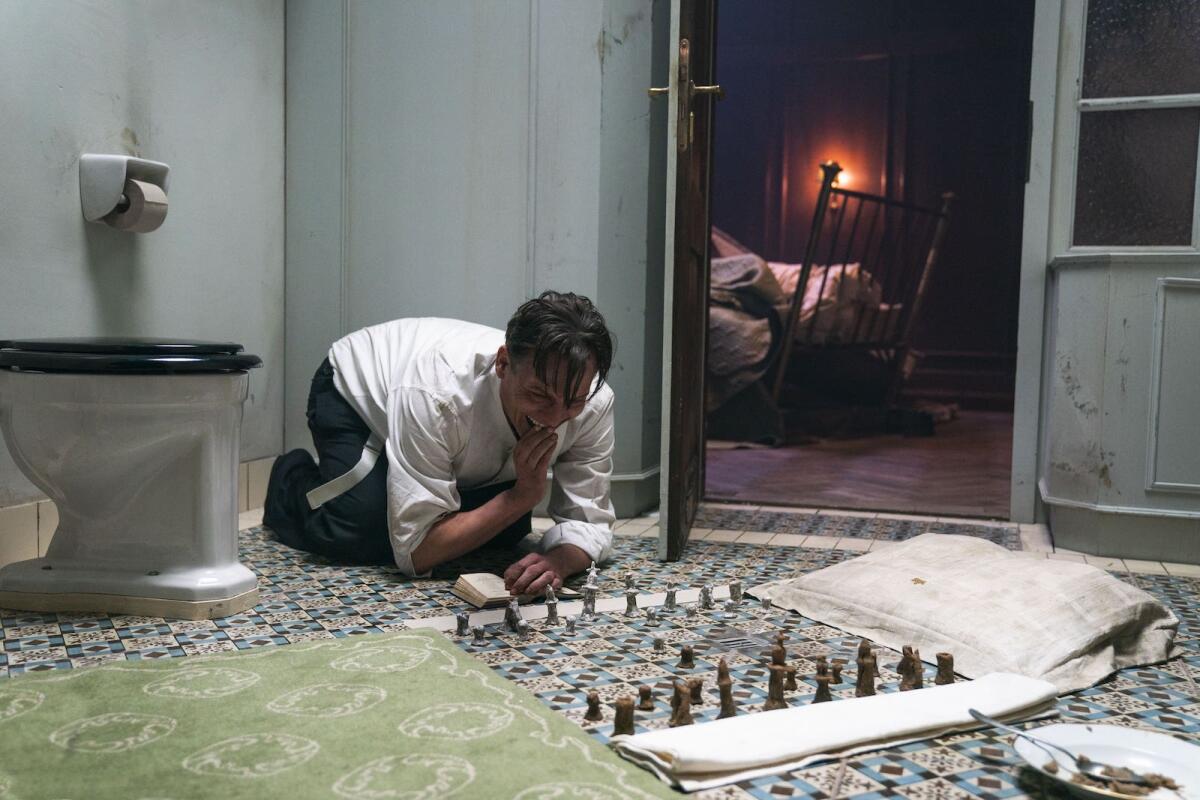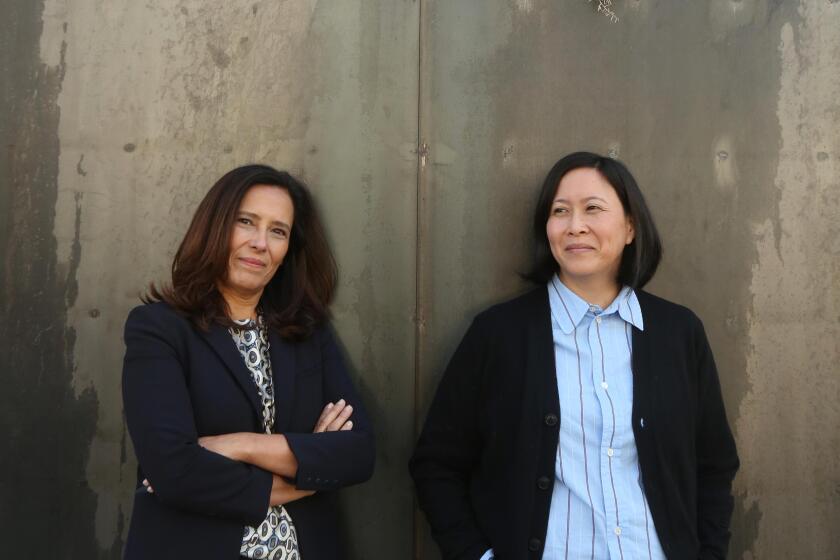‘Chess Story’ makes masterful moves in taut update of a Stefan Zweig novel

- Share via
Although the blandly nondescript title doesn’t exactly suggest the promise of deep intrigue, Philipp Stölzl’s “Chess Story” masterfully confounds expectations as a tautly calibrated, intricately constructed Chinese puzzle of a period drama set during Nazi Germany’s annexation of Austria.
Smugly dismissive of the darkening political climate surrounding the country in 1938, debonair notary Dr. Josef Bartok (Oliver Masucci) assures his wife, Anna (Birgit Minichmayr), that “as long as Vienna keeps dancing, the world can’t end.”
For your safety
The Times is committed to reviewing theatrical film releases during the COVID-19 pandemic. Because moviegoing carries risks during this time, we remind readers to follow health and safety guidelines as outlined by the CDC and local health officials.
But Bartok’s world as he knows it very quickly comes to an abrupt end, with German troops marching into Austria just as he and Anna plan to set sail for America.
Separated from his wife, he’s arrested and brought to the Hotel Metropol, commandeered as Gestapo headquarters, where the quietly calculating Böhm (Albrecht Schuch) expects Bartok to provide him with the account access codes belonging to his aristocratic clients in exchange for his freedom.
Realizing that there’s no guarantee his life will be spared once he gives up that information, Bartok embarks on a cagey game of cat and mouse with Böhm as he continues to be held prisoner in a claustrophobic hotel room where a smuggled book of annotated chess moves serves as his only connection to the outside world.
It’s not the first time that “The Royal Game,” an 80-year-old novella by Stefan Zweig, has captured the imagination of the international artistic community, having previously been filmed in 1960 under the more sensational moniker “Brainwashed,” followed by a 1964 TV movie called “Checkmate,” as well as various stage productions, including a 2013 opera.
As the film festival returns in person for the first time since 2020, organizers, filmmakers and executives reflect on its role in a changing culture.
But here, director Stölzl and screenwriter Eldar Grigorian, in addition to adding several characters not found in previous versions, seize upon the book’s surreal underpinnings and weave them more prominently into the fabric of the winding narrative, building or spiraling, depending on how you look at it, toward a mental breaking point of decidedly Kafkaesque proportions.
Masucci, who appears in every scene, potently conveys a multitude of unspoken emotions with his remarkably expressive face, both in his solitary hotel confinement and (ostensibly) later, on board that ship en route to America, where he finds himself outmaneuvering a world chess champion (also played by Schuch).
He’s never less than riveting, expertly tethering his character in place even as his mind gradually begins to lose its moorings in an existence where days, weeks and months have merged into clouded uncertainty.
While Bartok emerges from his labyrinthine struggle decidedly broken but still, unlike the original text, provided with a glimmer of hope, author Zweig’s journey was less encouraging.
As captured through the grimly murky lens that was Europe at that time, “The Royal Game” was written between September 1941 and February 1942 in Brazil, where Zweig and his second wife had been living as Austrian exiles.
The day after he mailed off the manuscripts of his “curious novella,” the Zweigs took their own lives with a barbiturate overdose.
“I think it better to conclude in good time and in erect bearing a life in which intellectual labour meant the purest joy and personal freedom the highest good on Earth,” he wrote, in despair of what could transpire in the months to come.
Eighty years later, “Chess Story” and all its variations continue to serve as a reminder of the importance of remaining in the game, no matter how seemingly futile, until the last possible move.
‘Chess Story’
In German with English subtitles
Not rated
Running time: 1 hour, 51 minutes
Playing: Starts Jan. 20, Laemmle Monica, Santa Monica
More to Read
Only good movies
Get the Indie Focus newsletter, Mark Olsen's weekly guide to the world of cinema.
You may occasionally receive promotional content from the Los Angeles Times.











